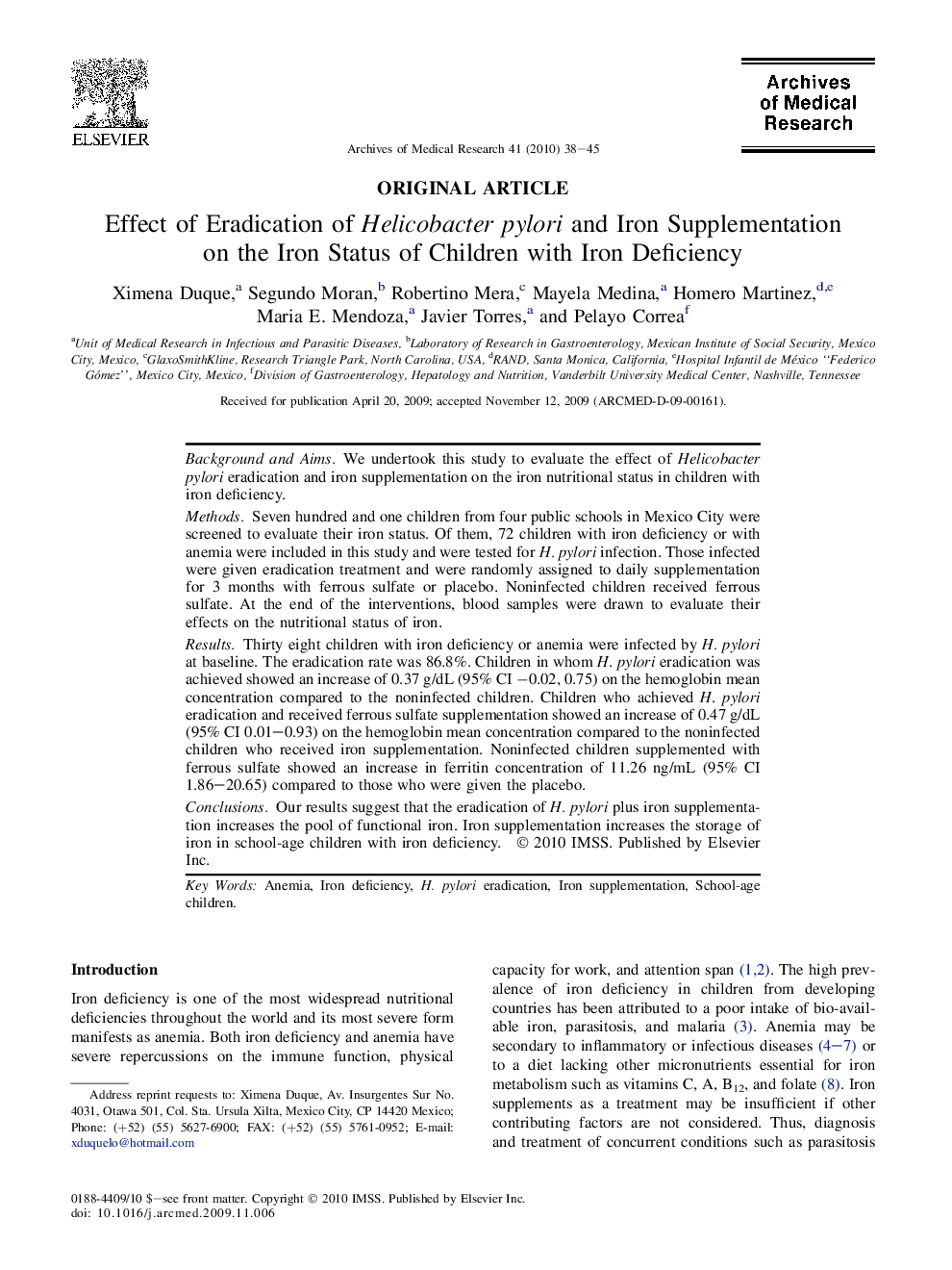| Article ID | Journal | Published Year | Pages | File Type |
|---|---|---|---|---|
| 3447368 | Archives of Medical Research | 2010 | 8 Pages |
Background and AimsWe undertook this study to evaluate the effect of Helicobacter pylori eradication and iron supplementation on the iron nutritional status in children with iron deficiency.MethodsSeven hundred and one children from four public schools in Mexico City were screened to evaluate their iron status. Of them, 72 children with iron deficiency or with anemia were included in this study and were tested for H. pylori infection. Those infected were given eradication treatment and were randomly assigned to daily supplementation for 3 months with ferrous sulfate or placebo. Noninfected children received ferrous sulfate. At the end of the interventions, blood samples were drawn to evaluate their effects on the nutritional status of iron.ResultsThirty eight children with iron deficiency or anemia were infected by H. pylori at baseline. The eradication rate was 86.8%. Children in whom H. pylori eradication was achieved showed an increase of 0.37 g/dL (95% CI −0.02, 0.75) on the hemoglobin mean concentration compared to the noninfected children. Children who achieved H. pylori eradication and received ferrous sulfate supplementation showed an increase of 0.47 g/dL (95% CI 0.01–0.93) on the hemoglobin mean concentration compared to the noninfected children who received iron supplementation. Noninfected children supplemented with ferrous sulfate showed an increase in ferritin concentration of 11.26 ng/mL (95% CI 1.86–20.65) compared to those who were given the placebo.ConclusionsOur results suggest that the eradication of H. pylori plus iron supplementation increases the pool of functional iron. Iron supplementation increases the storage of iron in school-age children with iron deficiency.
